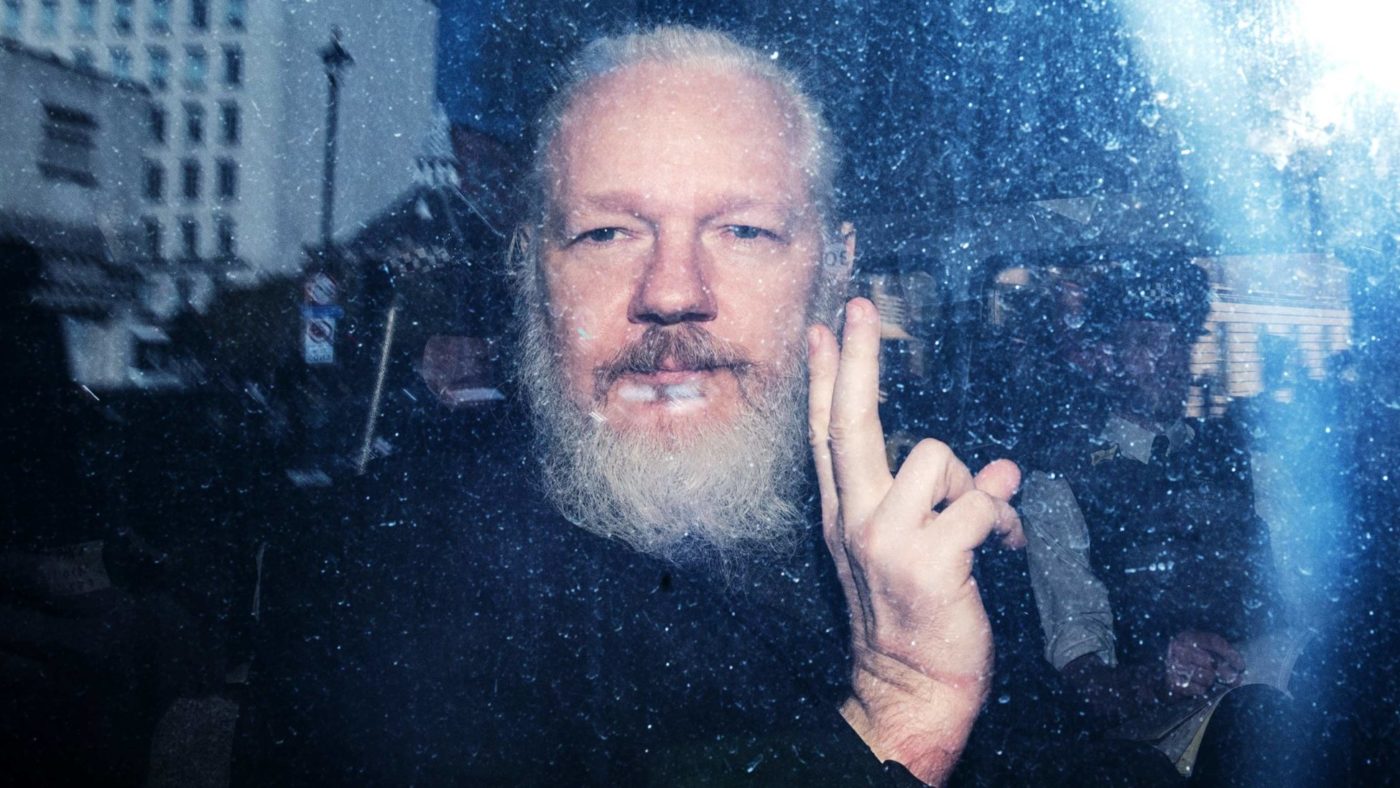“How could you, Equador [sic]?” asked Pamela Anderson plaintively on Twitter this morning. It evidently struck hard that her friend Julian Assange had been dragged literally kicking and screaming from his bolthole at the Ecuadorian embassy, but in truth Ecuador’s government and diplomats have put up with a lot from their uninvited guest over the past seven years. Their now-exhausted patience and discomfort are even then insignificant compared with the anguish of the Swedish women Assange is alleged to have raped and sexually assaulted and who have been denied justice by his flight.
Assange is neither a hero of free speech nor a rebel against state power. He is a criminal suspect who absconded on spurious grounds and who has now been arrested, charged and found guilty of breaching his bail. His tawdry personal saga is mirrored by the decline into obloquy of the WikiLeaks operation that he set up in 2006. This is not a whistleblowing operation concerned to uncover the crimes of the powerful but an instrument of repressive foreign governments and a conduit for their propaganda.
The squalid history of Assange is a record of serial attempts to thwart the rule of law. He has proclaimed himself a victim of a suspension of due process yet in reality he is a fugitive from it. He sought to evade a valid international arrest warrant, which he had the opportunity to challenge in both Sweden and Britain. His case was scrupulously considered by the Supreme Court. He chose to run and hide rather than answer charges of serious crimes. Swedish lawyers representing the complainants have today submitted a request to the Prosecutor’s office that the preliminary investigation into Assange be resumed. That is the least that can be done to assuage the need for justice for his alleged victims.
The US Justice Department has announced a criminal charge against Assange, accusing him of conspiring with the former intelligence analyst Chelsea Manning to hack into a government computer. Yet the US needs to demonstrate its case requesting extradition. The mythology of Assange that depicts him as a heroic fighter against state oppression could scarcely be further from the truth. Had he been genuinely in fear of his life owing to extradition to the US, he would have rationally agreed to face charges in Sweden, which is bound by EU and ECHR law not to extradite where there is a risk of a capital sentence. Instead he fled.
The cowardice and arrogance are in character. WikiLeaks originally had the reputation of being a free-speech organisation by its leaking millions of documents, including hundreds of thousands of US diplomatic cables. Among its disclosures was footage of a US airstrike that killed Iraqi journalists. Yet the lack of care and diligence with which the organisation dumped its documents became notorious. An investigation by Associated Press found that WikiLeaks had failed to redact the names of victims of rape and sexual abuse, and of sufferers from mental illness.
More recently, WikiLeaks has become mired in what can only be regarded as a propaganda campaign by foreign autocracies against the West. It played a crucial role, according to Western intelligence, in Russian interference in the 2016 US presidential election. Two leaks of documents damaging to Hillary Clinton and stolen by Russian hackers came at crucial moments in the campaign. At the very least they enabled Donald Trump to divert attention from his coarse, vulgar and sinister sexual boasts. The timing was at least suggestive of collusion. The crude anti-American politics of WikiLeaks puts it squarely on the side of Russia and its fake news outlets RT and Sputnik.
That’s where we are. A man who stinks to high heaven, apparently not only metaphorically, has at last been apprehended and arraigned. The organisation he founded has complacently demonstrated that any reputation it had for truth-telling was misconceived. The complainants against Assange deserve an answer – and not only from him. Throughout this drawn-out bleak farce, some alternately credulous and disreputable figures have acted as Assange’s plenipotentiaries, and it’s not too demanding to suggest they now pipe down.
Amid this roll of dishonour, George Galloway predictably stands out for having suggested that Assange might at worst have been guilty of “bad sexual etiquette”. The former diplomat Craig Murray, evincing the prejudices of his era and background, disgracefully named one of the complainants on live television. Vaughan Smith, founder of the journalists’ Frontline Club, gave Assange sanctuary and defended his decision in a statement that made literally no reference to the women his friend was alleged to have assaulted. (It’s a tiny symbolic act but this caused me to resign my membership of the Frontline Club.)
Let judgment run down as waters, and righteousness as a mighty stream, says the Book of Amos. For Assange and for the women who have bravely not given up the fight, it will not be before time.
CapX depends on the generosity of its readers. If you value what we do, please consider making a donation.


